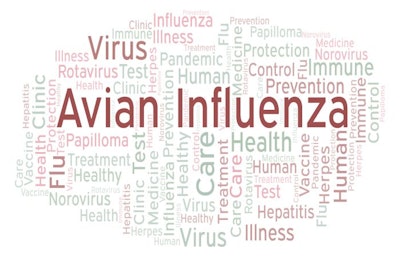
Taiwan is the only country to have reported an outbreak of highly avian influenza over the past week. In India, compartmentalization of the poultry industry has been introduced in one state to help reduce the impacts of any future avian flu outbreak, and measures have been ramped up to prevent the spread of the disease in Vietnam and Belgium.
One new outbreak of highly avian influenza (HPAI) linked to the H5N2 virus subtype has been confirmed in Taiwan. The disease was confirmed in a flock of 1,531 ducks in Changhua county last week, reports Focus Taiwan. All the birds have been culled, and the farm and surrounding areas have been disinfected.
Based on this and previous official reports, this latest outbreak brings Taiwan’s total so far this year to 36, with more than 462,000 poultry culled. The disease has been present in the country since 2015.
Iran: HPAI contained
With the most recent recorded HPAI outbreak in April, Iran’s Veterinary Organization has announced the country is free of avian flu, reports Financial Tribune. Weekly examinations have revealed no signs of the disease since that time, according to Alireza Akbarshahi, Secretary-General of the Organization’s poultry diseases office.
Caused by the H5N8 virus subtype, the most recent HPAI outbreaks reported to the to the World Organisation for Animal Health (OIE) were linked to the H5N8 virus subtype, and occurred in a flock of village poultry in Tehran, and at an egg farm in East Azerbaijan province.
Vietnam on heightened avian flu alert
Changing weather and a spike in the transportation of poultry ahead of the Lunar New Year holiday could lead to the further spread of HPAI in Vietnam. This warning was issued by the agriculture ministry, reports Vietnam Plus.
So far this year, the H5N1 and H5N6 virus variants have affected poultry in 13 communities in 11 provinces/cities, and led to the culling of more than 23,000 poultry, according to the ministry. Illegal imports of poultry and products through Vietnam’s northern borders are seen to pose a particular risk to the country’s poultry.
Long-lasting impacts of avian flu on Indian egg trade
India’s agriculture ministry has recently declared the country HPAI-free to the OIE, following a series of earlier outbreaks linked to the H5N1 virus in the state of Orissa.
Avian flu can impact a country’s poultry sector long after the disease has been eradicated, and the effects can be felt far away from the outbreaks, according to New Indian Express.
At around 267 million in 2016-17, exports of eggs from the southern state of Tamil Nadu had declined by a factor of six from the 1.22 billion before the country’s first HPAI outbreaks in 2006, according to figures from the veterinary services.
However, zonal compartmentalization of the poultry industry can have positive results. Previously, other countries would ban imports as soon as the first outbreak of a disease such as HPAI was reported anywhere in the exporting country.
Now, based on a common management system and compliance with high standards and surveillance, 11 poultry farms in Tamil Nadu have been classified by the government as a compartment. As long as the compartment remains disease-free, the individual farms can continue operations and are exempt from most transport restrictions even if an outbreaks occurs elsewhere in the country. This measure gives importing countries greater confidence to maintain trading patterns without jeopardizing the health of their own poultry and human populations.
Seen as key to compartmentalization in the state in the government’s construction of a new diagnostic lab at Padappai, and three new animal disease intelligence units.
Belgium steps up H3 avian flu controls
The continuing spread of an avian influenza virus of the H3 family in Belgium has led to the publication of a new Royal Decree. Published earlier this month, the decree adds to measures brought into law in June.
Under the decree, farmers whose poultry are found to be positive for the H3 virus must have their birds slaughtered or destroyed within 14 days of receiving a removal order—or within 30 days for broilers older than 14 days and showing no symptoms. The decree also confirms that European Union regulations on state aid allow producers whose birds are slaughtered to be receive financial compensation for the loss of the flock.
According to the Federal Agency for Safety of the Food Chain (FAVV), the H3 virus has been detected at “several dozen” poultry farms since April of this year, with most of the outbreaks in West Flanders, and others in the provinces of East Flanders, Antwerp, Liege, and Luxembourg.
View our continuing coverage of the global avian influenza situation.

















